Soft hiking is the latest viral TikTok trend - and it's inspired us to fall in love with walking
Forget the Hot Girl Walk, soft hiking is the new walking trend everyone is talking about.
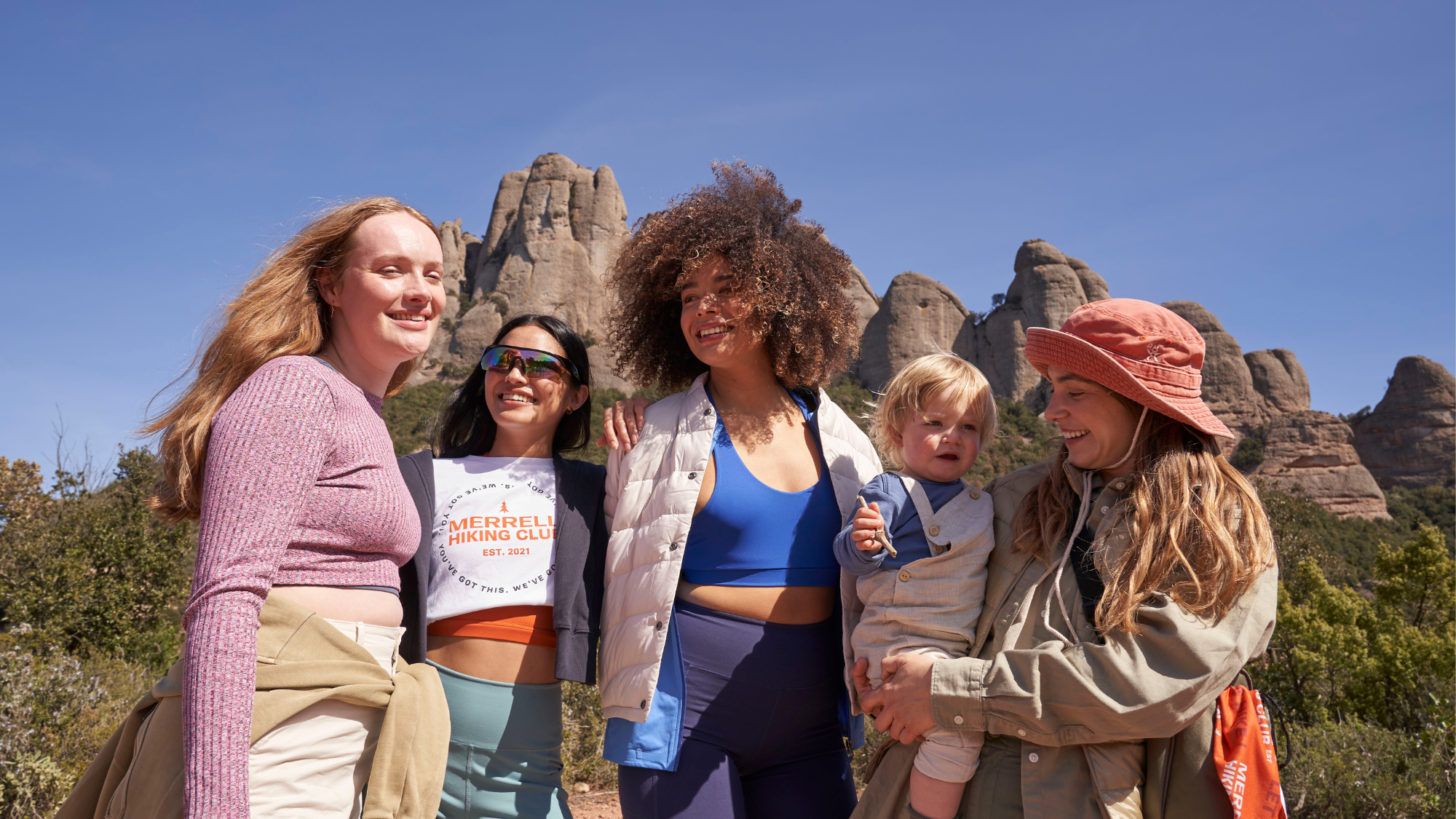

If you've seen soft hiking videos popping up on your For You Page on TikTok and wondered what the viral trend is all about, let us explain.
In 2020 - partly thanks to a seemingly never-ending UK lockdown, everyone seemingly fell in love with the many benefits of walking. But it didn't stop there, and since then, walking trends have become common on TikTok, with trends including the Hot Girl Walk and the 12-3-30 both going viral on the app.
Next up? Soft hiking is taking over as the trend du jour.
It makes sense that everyone is fan-girling over hiking. Studies repeatedly show that being outside does wonders for our health, with a paper from Environment, Science and Technology finding that outdoor exercise boots energy and revitalisation, as well as reducing feelings of tension, confusion, anger and depression. The same study found that exercise done indoors didn't have the same impact.
But, truth be told, hiking can feel a little daunting. Unlike walking, which can be done anywhere - to and from the shop, around the block, on the phone to your friend - hiking elicits something a bit more serious. In your mind's eye, you might see hiking as something that's done with seriousness, on hard-to-climb terrain and with a goal in sight.
But not with soft hiking. Keen to read more about the viral, low impact trend that you can do practically anywhere (as long as it's outside?). Then keep scrolling. Don't miss our edits of the best UK hikes, best hiking boots, and low impact workouts for beginners, while you're here.
@softgirlswhohike ♬ pluto projector - al
Introducing soft hiking, the latest viral Tiktok trend
So, what is soft hiking?
Good question. The trend, which was first created by Soft Girls Who Hike, is explained in a video of theirs. They share: "It's not about pushing yourself to the limit or ticking something off. Soft hiking is about the pure joy of enjoying time in nature and moving your body."
Marie Claire Newsletter
Celebrity news, beauty, fashion advice, and fascinating features, delivered straight to your inbox!
In short, soft hiking simply means chill hiking. It's about moving at your own pace and enjoying it. "There are no specific requirements - you don’t have to be particularly strong or fit to keep up with an expected pace and it’s much more leisurely than traditional hiking," says Catherine Lauris, community manager at Merrell Hiking Club UK. "You can go at your own pace and take as many breaks as you like to enjoy your surroundings. It’s an empowering activity which is all about inclusivity, positivity, being present and enjoying the walk without any pressure."
The best way to do soft hiking is just to start. Ideally, soft hiking is done in a traditional hiking spot: think green spaces, hills and lakes.
Top tip: a great way to get started with finding these places near you are by using one of the best fitness apps like AllTrails, which helps you to find hiking trails close by - there will be a route for you even if you're in a busy city. (That, or scroll our guide to the best UK hiking routes).
Next? All you have to do is stroll. You might intentionally move more slowly than you typically would to really take in nature, or walk in a way that feels comfortable for you. The point with soft hiking is that it isn't hard, it's enjoyable.
What are the benefits of soft hiking?
According to Lauris, there are loads spanning both physical and mental.
The main benefits of soft hiking are as follows.
1. Boosts feelings of happiness and wellbeing
Exercise triggers the release of endorphins and serotonin, which generate positive feelings in the body.
According to a study of 20,000 people conducted by the University of Exeter, those who spent two hours a week in nature reported better health and psychological wellbeing than those who didn't. Multiple studies have linked nature walks with improved mental health.
2. Reduces stress
As well as releasing feel-good hormones, exercise also helps our bodies become better at managing levels of cortisol, our stress hormone. How? Well, being outside in green spaces causes your blood pressure to drop and heart rate, brain waves and breathing to slow down, all of which help you feel calmer and less stressed.
According to a study published by Frontiers in Psychology, spending just 20 minutes a day in nature can significantly lower your stress hormones. The study concludes that health practitioners could be encouraged to prescribe a 'nature pill' to their patients.
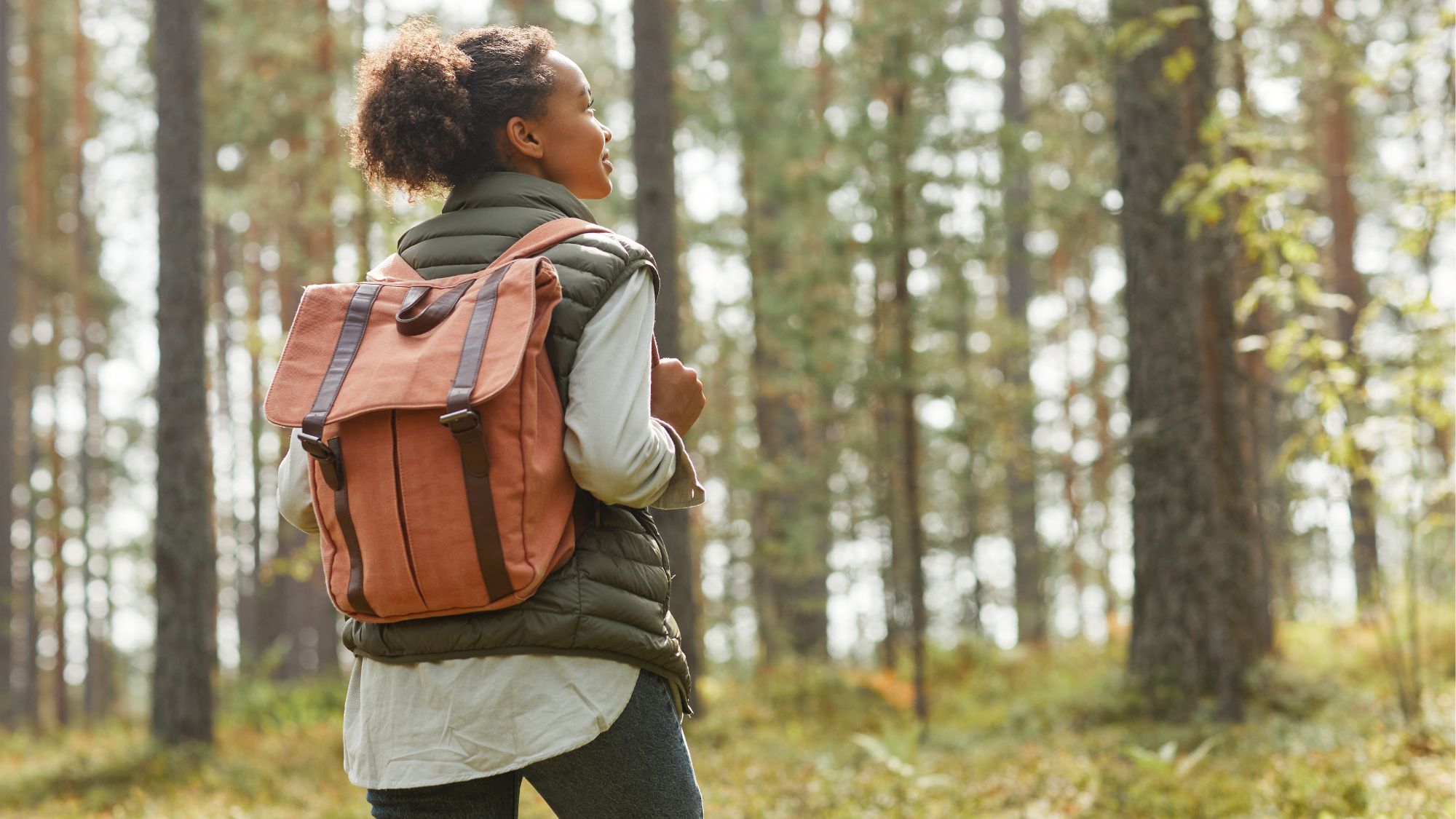
3. Reduces anxiety and depression
Did you know? The links between spending time in nature and protecting against anxiety symptoms and depression symptoms are well-documented. Among the scientific community, the consensus is clear - the more time you spend outside in green spaces, the better.
Often, anxiety and depression cause people to lose sight of the big picture. Instead of being present and enjoying life, people struggling with mental health conditions become stuck focusing on the small disappointments, challenges and failures that are a normal part of life.
Hiking in nature helps put things into perspective and calm your nervous system - not to mention, it's an effective treatment option that is accessible to the majority of people.
4. Improves cognitive function
Taking a break in nature can improve your concentration by giving your brain a well-deserved break.
Multiple studies have shown that being in nature and getting exercise can improve cognitive function, including attention, memory and problem-solving skills. It can also spark creativity.
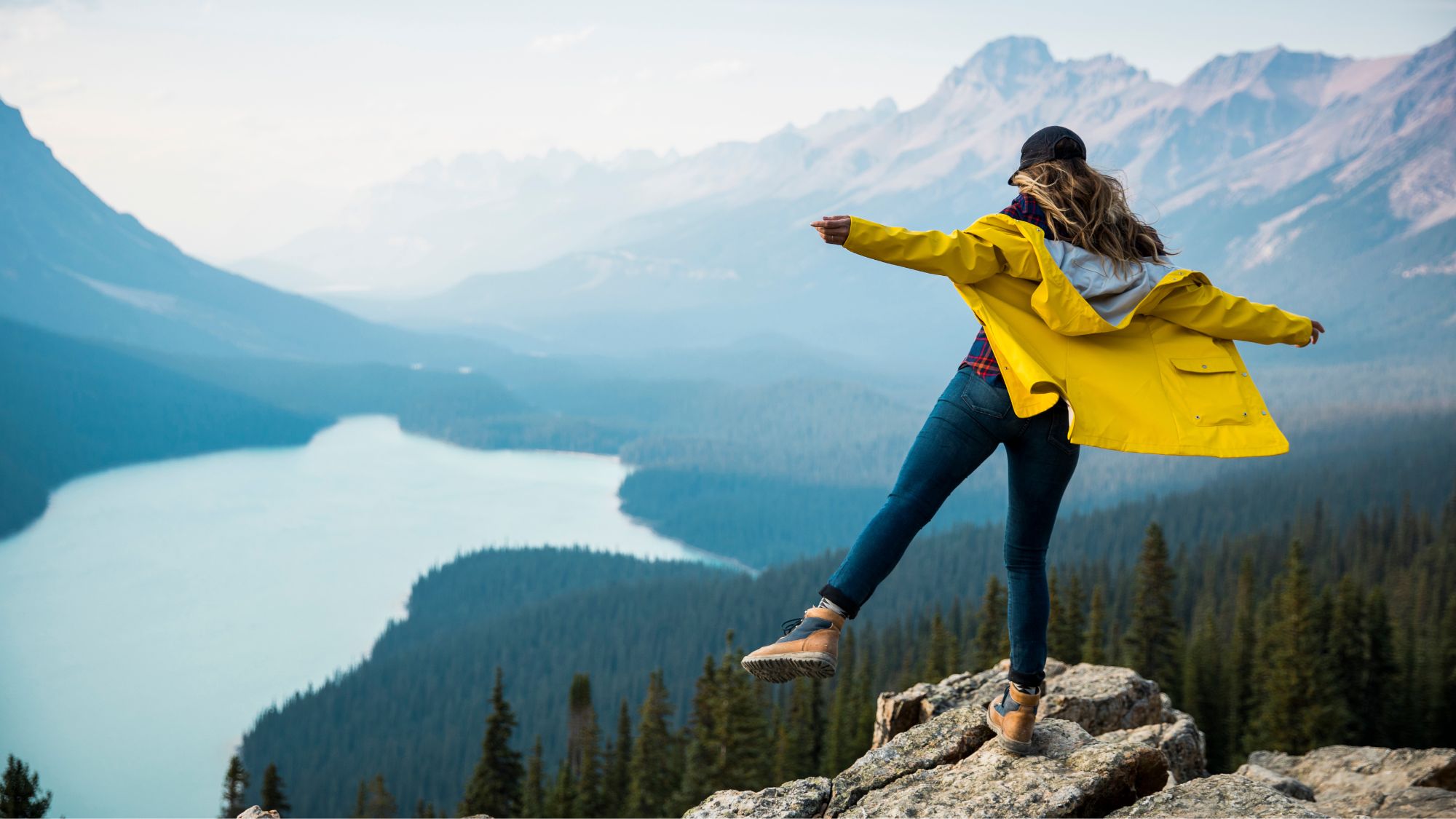
5. Enhances balance and stability
As you hike along a trail, your leg and core muscles are constantly engaging and contracting to provide stability and balance, especially when walking on uneven terrain. As these core-stabilising muscles strengthen over time, balance improves, which can help reduce the risk of falls and injuries.
6. Promotes better sleep
Numerous studies have shown that spending more time outdoors can improve sleep quality. Being outdoors in natural light helps to reset circadian rhythms, which regulate the sleep-wake cycle.
How to start hiking as a beginner
The most important thing for all hikers to remember is to research their route before starting and ideally hike in a group for safety. Even then, it's important to let people know where you're heading and how long you think it will take.
"If you have nobody to go with, find a hiking group like Merrell's Hiking Club to tag along with. It's a great community that provides an inclusive, safe space for hikers of all levels to connect," advises Lauris.
Always take a map, a charged phone and battery pack, plenty of water and food and anything else that might help you on your way such hiking poles.
But most importantly, have fun and remember that the outdoors is for everyone, not just those fast enough to fly up tricky hills. "Take breaks to enjoy the beauty that surrounds you," concludes the expert.
"I tried Soft Hiking - and it's changed my life"
Lucy and Emily started Soft Girls Who Hike as a way to show others that there is no one size fits all when it comes to hiking.
Now, they share tips and routes on their TikTok page, where they've amassed nearly twelve thousand followers.
@softgirlswhohike ♬ Aesthetic - Tollan Kim
"We're showing you that hiking doesn't have to be hard," they explain. "We'd been on lots of different hikes before and we just felt like we weren't good enough, strong enough, or fit enough to keep up."
That's where soft hiking comes in, encouraging everyone to get outside and enjoy the great outdoors. "Soft hiking is less about being slow - it's just about going at your own pace," the founders share exclusively with Marie Claire UK. "Whatever a soft hike looks like to you is valid - it's not about getting from point A to point B in record time."
On their TikTok page, they detail how soft hiking has changed their life, improving both their physical and mental health. Soft hiking proves once more that health isn't a one size fits all - rather, working out what movement works best for you and your body.
"A lot of our followers share that they felt self conscious about themselves, had negative experiences on competitive group hikes, or experienced other barriers, such as chronic illness," they share."It's so important to acknowledge that everyone faces daily battles - our main goal is ultimate inclusion."
They're keen to remind everyone that they have as much right to be on a hike as a more seasoned or experienced hiker. "People who haven't had the confidence or motivation to get outdoors for their physical and mental health now have a new found motivation."
4 kit picks for soft hiking
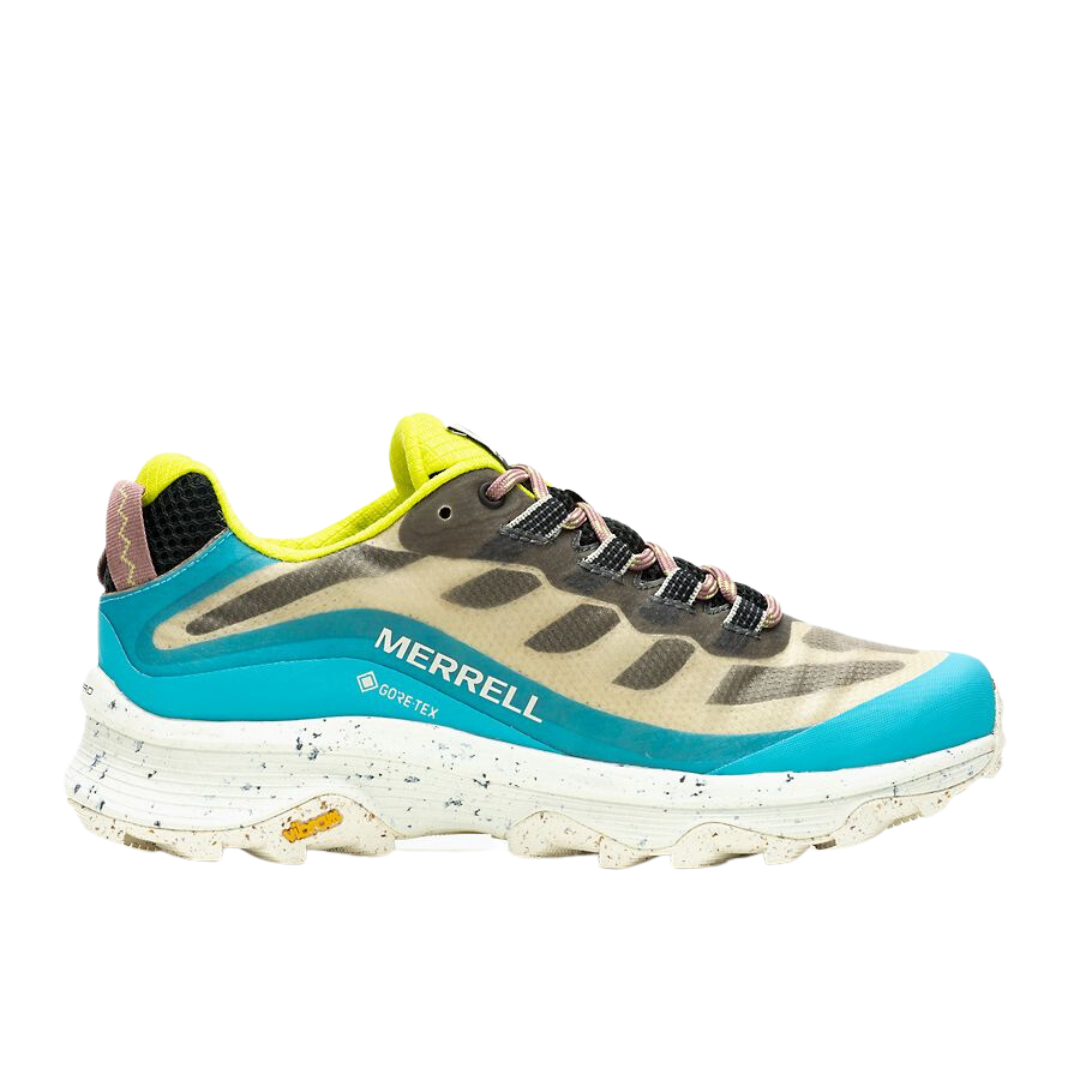
Even if you're not going fast, you still need a sturdy shoe. Unlike walking around on pavements, hiking in nature means uneven terrain, so a supportive hiking shoe matters. These Merrell trainers perform as good as they look, with a waterproof shell and added traction and stability. MC UK Health Editor Ally Head owns them and swears by them for long walks.
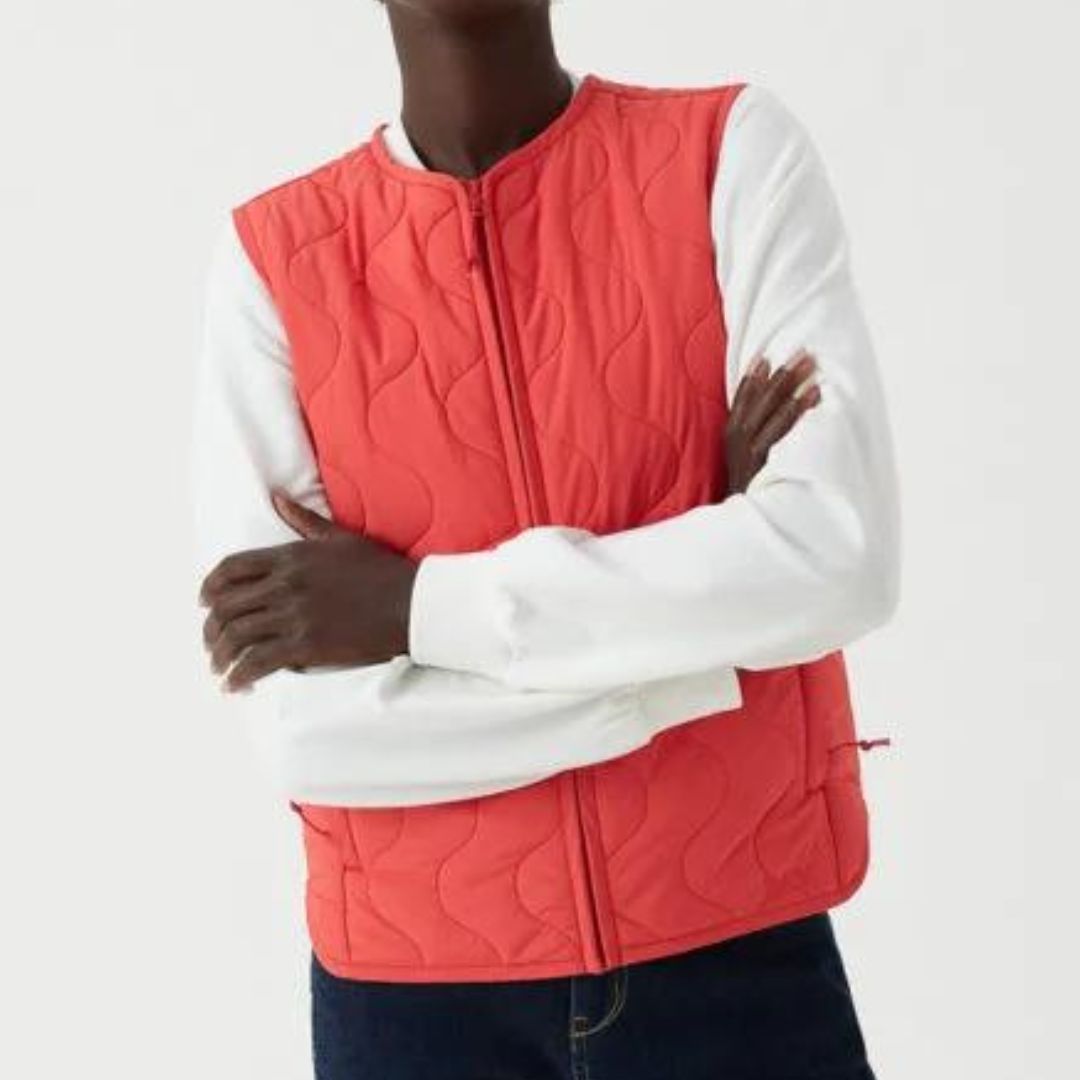
It's getting warmer but it's not quite summer, so you still need to insulate. This hiking vest is a perfect combination of water-repellent, warm and airy to get you through whatever weather the UK throws at you. Not to mention, all BAM designs are created with both people and planet in mind.
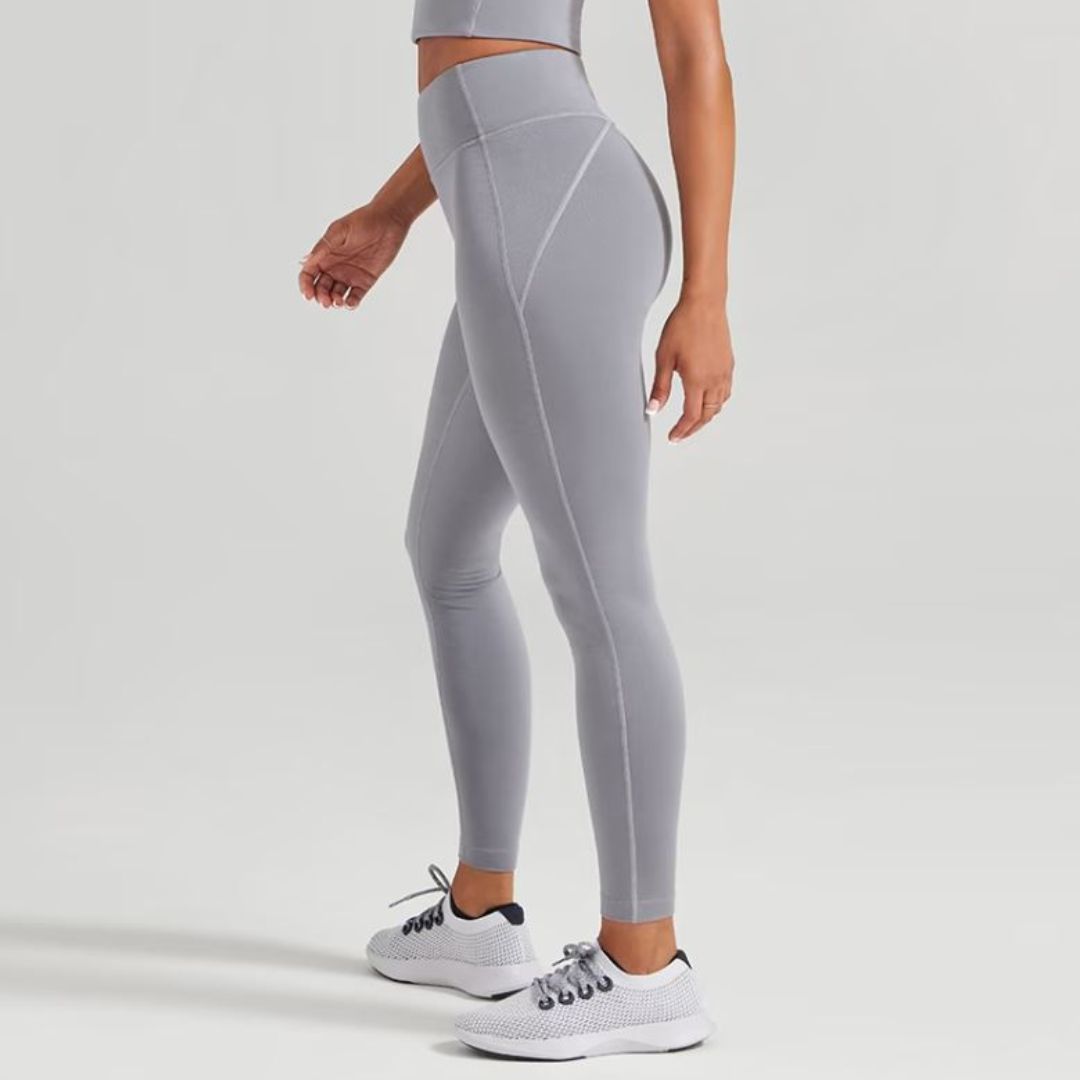
Long bottoms are always a good idea when hiking, as you never know when you'll be fighting through long grass. These Allbirds leggings low carbon footprint, comfortable for all day long, and have a back pocket for easy phone storage. For more of the best gym leggings, scroll our tried and tested guide.
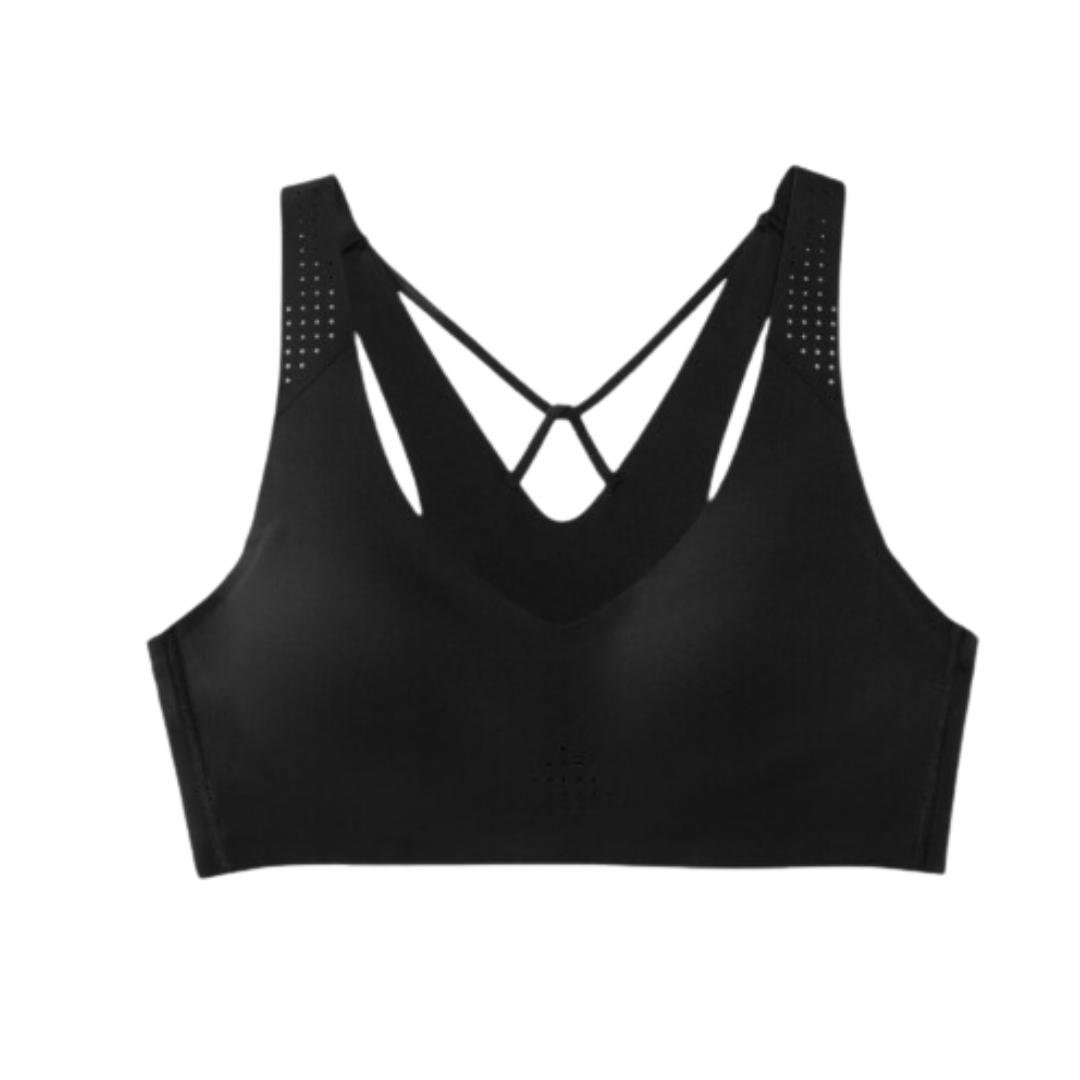
Imagine being out in the wilderness for hours without the right support? Yep, while hiking isn't high intensity, you do want to feel comfortable for all those hours outside. That's why this soft, distraction-free sports bra is our go-to. Scroll our entire edit of the best sports bras, here.

Chloe Gray is a freelance journalist who writes and talks about health, fitness, and wellbeing through a feminist lens. She was part of the launch team for Stylist magazine's fitness brand, Strong Women, and has written for i news, Women's Health, Red magazine, Good Housekeeping, Refinery29, and more. She's all about building mental and physical strength, eating delicious food that fuels you well, and making the fitness industry more accessible and enjoyable. She's also a qualified fitness trainer and research nerd, so you can be sure everything you read is backed by proper science.
-
 Mytheresa is having a secret sale right now and these are the 11 cult items I'm eyeing
Mytheresa is having a secret sale right now and these are the 11 cult items I'm eyeingIncluding the designer bag that was everywhere at Milan Fashion Week
By Clementina Jackson
-
 Prince Harry reportedly extended an 'olive branch' to Kate and William on latest UK trip
Prince Harry reportedly extended an 'olive branch' to Kate and William on latest UK tripBig if true
By Iris Goldsztajn
-
 How Prime Video is protecting Blake Lively amid her new movie promo
How Prime Video is protecting Blake Lively amid her new movie promoAn understandable move
By Iris Goldsztajn